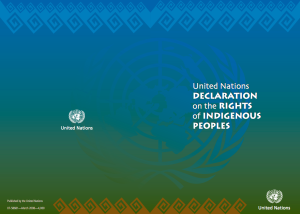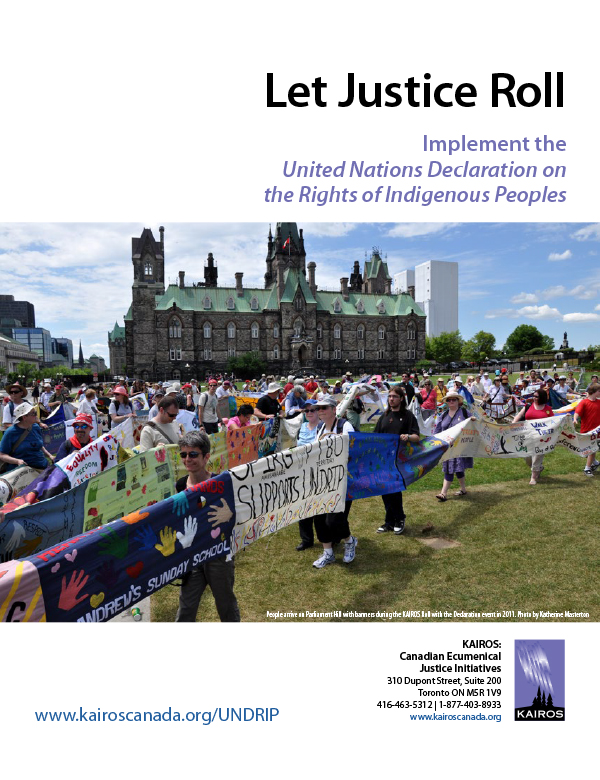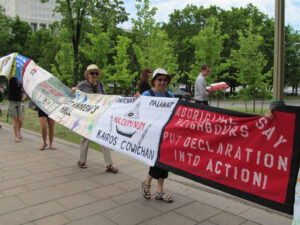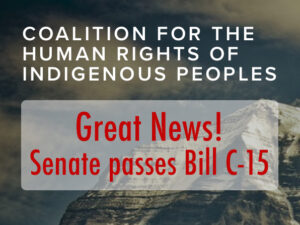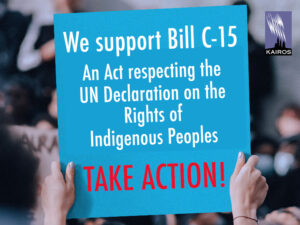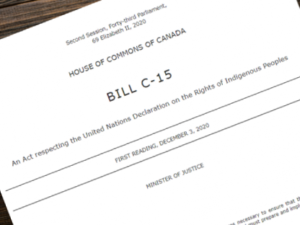While Canada consistently ranks as one of the world’s top countries in which to live, according to the United Nations Human Development Index, when the same criteria is applied to Indigenous peoples in Canada, their rank drops to sixtieth or below – far, far behind their Canadian neighbours.
Canada’s Aboriginal policy has been repeatedly criticized both internationally and nationally for violating Indigenous peoples’ rights. The federal 1986 Comprehensive Claims Policy, for example, is premised on the assimilation of Aboriginal peoples through the extinguishment of their title and rights. This policy has been criticized by the United Nations, discredited by the landmark Royal Commission on Aboriginal Peoples, and cast aside by the Supreme Court of Canada in its 1997 Delgamuukw decision, which recognized the collective rights of Indigenous peoples. Yet the policy continues to influence land rights negotiations and Canadian governments continue to disregard, limit, and terminate Indigenous rights, including land and treaty rights.
The Government of Canada’s past and current dismissive and discriminatory approach toward Indigenous peoples was evident in its position on the UN Declaration. After opposing and campaigning against it for more than four years following its adoption by the UN General Assembly, the Canadian federal government finally and quietly issued an official, qualified statement of endorsement on November 2010, albeit with many reservations, ultimately calling it an “aspirational document.” The government’s main objections to the UN Declaration included provisions dealing with lands, territories and resources, and free, prior and informed consent (FPIC). In November 2015, in his mandate letters to ministers, Prime Minister Justin Trudeau asked the Minister of Indigenous and Northern Affairs, the Minister of Justice, and others to implement the UN Declaration in order to renew a nation-to-nation relationship between Canada and Indigenous peoples, “based on recognition, rights, respect, co-operation, and partnership.” In May 2016, the Minister of Indigenous and Northern Affairs, Carolyn Bennett, announced Canada would remove its objector status to the UN Declaration and be a full supporter, without qualification, of the UN Declaration. She said: “Today’s announcement that Canada is now a full supporter of the Declaration, without qualification, is an important step in the vital work of reconciliation. Adopting and implementing the Declaration means that we will be breathing life into Section 35 of Canada’s Constitution, which provides a full box of rights for Indigenous peoples.”
In April 2016, Romeo Saganash, MP for Abitibi-Baie-James-Nunavik-Eeyou introduced Bill C-262, an Act to ensure that the laws of Canada are in harmony with the United Nations Declaration on the Rights of Indigenous Peoples. This Private Members bill received critical endorsement when, on November 20, 2017, Justice Minister Jody Wilson-Raybould announced that the Government of Canada would support the Private Members bill when it came up for second reading in the House of Commons. On May 31, Bill C-262 passed third reading in the House. It is currently before the Senate and must pass third reading and Royal Assent before Parliament is dissolved for the federal election.
KAIROS’ work
KAIROS has been involved since the very beginning, working to get the UN Declaration written and adopted by the UN General Assembly, and later adopted and implemented by the Canadian Government. In 2010, with the support of the Grand Council of the Crees, the Assembly of First Nations and other Indigenous organizations, KAIROS joined with Amnesty International, Canadian Friends Service Committee (Quakers), and Rights & Democracy to launch a public education and advocacy campaign urging Canada to play a leading and constructive role in ensuring the adoption of this urgently-needed international human rights standard by the United Nations. Since Canada’s November 2010 qualified endorsement of the UN Declaration, KAIROS has continued to advocate for its full implementation in Canada, including network support for the passage of Bill C-262, an Act to ensure that the laws of Canada are in harmony with the United Nations Declaration on the Rights of Indigenous Peoples.
KAIROS grounds its efforts in the work of the Truth and Reconciliation Commission, which stated in its 2015 final report: “We remain convinced that the United Nations Declaration provides the necessary principles, norms, and standards for reconciliation to flourish in twenty-first-century Canada.” [1] KAIROS is committed to truth, healing, and reconciliation for the past, and Indigenous justice for the present. We support an active process of decolonization—ourselves, our communities, our churches, and our country—building just and respectful relationships between Indigenous and non-Indigenous peoples, and contributing towards the recognition of Indigenous peoples as distinct peoples and nations, with rights to land and self-determination, as enshrined in the United Nations Declaration on the Rights of Indigenous Peoples.
[1] The Truth and Reconciliation Commission of Canada, “Honouring the Truth, Reconciling for the Future: Volume 1: Summary,” pg 21.
